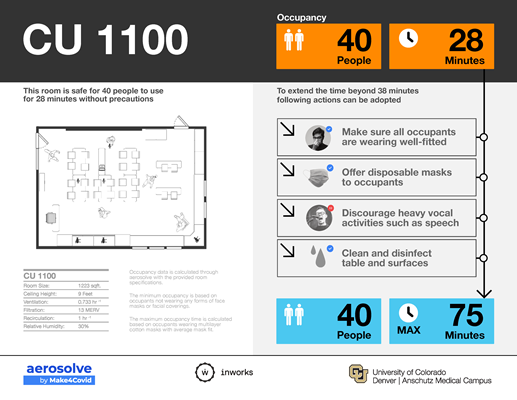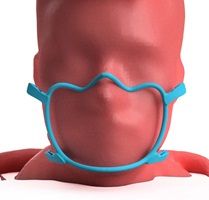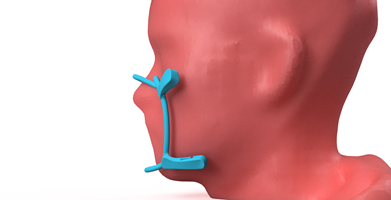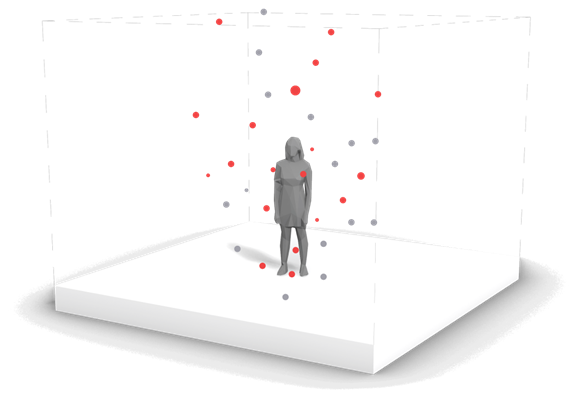External Programs

Aerosolve
Partners
- City of Westminster
- CityCenter
- School of Public Affairs Center for Local Government
Team
- Dan Griner
- Andrew Henderson
- Daniel Rodriguez
- Abby Krohn
- Will Fischer
- Schawn Li
Make4Covid Team (external)
- Jon Norton
- Hubert Smits
Aerosolve
During the Covid-19 crisis, the importance of finding ways to reopen and make critical centers of aid safer to use and work at capacity became apparent. If, and when, we are faced with another health crisis, we realize that we need to have better solutions and change how we look at our public spaces and the critical need for access by the communities they serve.
Aerosols are important drivers of infection. They can be airborne, and thus infectious, for hours and can travel long distances indoors. Simple behaviors like masks and speaking quietly reduce production while ventilation is critical for occupied spaces.
Along with the team at Make4Covid, our team researched this problem to understand the best practices for prevention. This involved an exploration of methods of transmission for Covid, aerosol dispersal in public environments, Air balancing
in commercial buildings, and cutting-edge techniques for air exchange measurement. This led to several projects that would address some of the most difficult areas of need.
Findings
Project Safe Schools
This involved the testing and application of a CO2 based measurement that tests dispersal times in existing buildings. This was tested in several university buildings and auditoriums, classrooms, and a
local museum. Based on the results of this work we were able to provide more prescriptive guidance on safe usage of these spaces.

Operation Facehugger
While mask mandates were in effect and supply lines for critical PPE were at their lowest. We honed in on how to make the most available mask models more efficient. Since a 2% gap in a face mask could present a 50% drop in protection, we saw this as an
opportnity for designing a skin-safe additive-manufactured solution that could be open sourced and distributed with surgical masks. This optimization appliance would overlay the most common masks available and increase their effectiveness with improved
fit over a variety of facial sizes. 

Aerosolve App
This was a web application that would provide a risk assessment tool to help understand the relative risk in a building environment with consideration of the size of the building, its HVAC systems capabilities,
mask enforcement and percentage of infections and vaccinations in the local area. We then combined the work of researchers at CU Boulder, MIT and Harvard to develop a series of interventions and suggested-use guidance that addressed the unmet need
of making our public and shared spaces safer to access. The app walks you through a step-by-step evaluation process and helps you to determine the safety level of your indoor space from aerosol transmission of COVID-19. It then provides actionable
recommendations to help you make your space as safe as possible. Our goal in ist creation was to create a user-friendly guide and match it with a simple, intuitive interface in order to make the important information accessible and easy to understand
for a variety of users. Our team’s research and work resulted in an app called Aerosolve.
